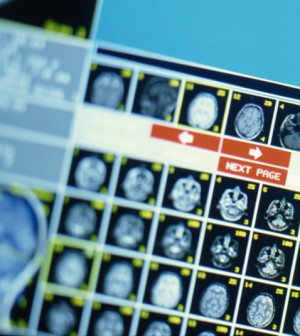- Could Your Grocery Store Meat Be Causing Recurring UTIs?
- Are You Making This Expensive Thermostat Error This Winter?
- Recognizing the Signs of Hypothyroidism
- 10 Strategies to Overcome Insomnia
- Could Artificial Sweeteners Be Aging the Brain Faster?
- Techniques for Soothing Your Nervous System
- Does the Water in Your House Smell Funny? Here’s Why
- Can a Daily Dose of Apple Cider Vinegar Actually Aid Weight Loss?
- 6 Health Beverages That Can Actually Spike Your Blood Sugar
- Treatment Options for Social Anxiety Disorder
Health Highlights: July 25, 2014


Here are some of the latest health and medical news developments, compiled by the editors of HealthDay:
CDC Resumes Transfer of Biological Samples Between Labs
The U.S. Centers for Disease Control and Prevention said Thursday that it would allow the first transfer between its labs of potentially hazardous biological material since a ban on such shipments was put in place earlier this month.
The ban followed revelations of recent incidents involving mishandling of potentially dangerous samples of anthrax, botulism bacteria and the H5N1 flu virus, the Washington Post reported.
So far, resumption of sample transfers is only happening at the CDC’s tuberculosis laboratory, and involves the movement of inactivated TB bacteria to lower-level CDC labs for DNA analysis, according to an agency statement. The ban is still in place at the agency’s other laboratories, pending a safety review, according to CDC spokesman Tom Skinner.
In addition, the CDC has also appointed an 11-member external laboratory safety group to advise CDC officials on what safety improvements are needed at agency labs, the Post reported.
On Tuesday, the director of the CDC laboratory implicated in the anthrax incident, Michael Farrell, tendered his resignation, Skinner announced.
Copyright © 2026 HealthDay. All rights reserved.










